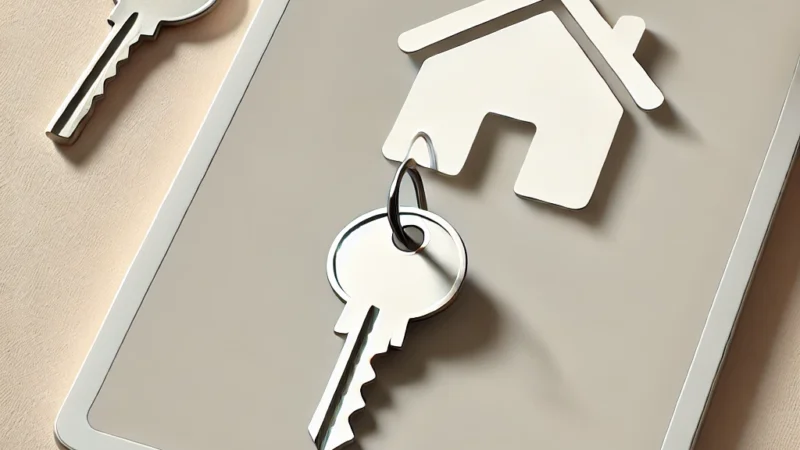The Ultimate Guide to Buying Your First Home in New Jersey

Buying your first home is an exciting milestone, but it can also be overwhelming—especially in a state as diverse as New Jersey.
With a competitive housing market, varying property taxes, and different neighborhood dynamics, understanding the process is crucial for making an informed decision.
This guide walks you through everything you need to know about purchasing your first home in New Jersey, from financial preparation to closing the deal.
Step 1: Assess Your Financial Readiness
Before diving into the home-buying process, ensure your finances are in order.
1. Check Your Credit Score
A strong credit score helps secure better loan terms and lower interest rates. Lenders typically look for a score of at least 620, though a higher score improves your chances of getting favorable mortgage terms.
2. Save for a Down Payment
New Jersey’s home prices vary widely depending on location. A 20% down payment helps you avoid private mortgage insurance (PMI), but first-time homebuyers may qualify for programs with lower down payment options.
3. Understand Your Debt-to-Income Ratio (DTI)
Lenders evaluate your DTI to determine your ability to repay a loan. Keeping it below 43% improves your chances of loan approval, though lower is always better.
4. Get Pre-Approved for a Mortgage
A mortgage pre-approval strengthens your position as a buyer. It shows sellers that you’re financially prepared and speeds up the closing process. Shopping around with multiple lenders can help you secure the best rates and loan terms.
Step 2: Research the New Jersey Housing Market
New Jersey offers a range of housing options, from urban condos in Jersey City to suburban homes in Princeton.
1. Identify the Right Location
Each area has unique advantages. Some of the most popular places for first-time buyers include:
- Jersey City & Hoboken – Perfect for NYC commuters, featuring modern apartments and a lively social scene.
- Montclair & Maplewood – Known for excellent schools and a strong sense of community.
- Princeton & West Windsor – Popular among professionals and families due to top-tier schools and proximity to major employers.
- South Jersey (Cherry Hill, Marlton) – Offers more affordable housing with easy access to Philadelphia.
2. Understand Property Taxes
New Jersey has some of the highest property taxes in the country. Researching rates in different municipalities helps you budget effectively, since taxes can significantly impact your monthly mortgage payment.
3. Consider First-Time Homebuyer Assistance Programs
Several programs can help first-time buyers afford a home:
- NJHMFA First-Time Homebuyer Program – Provides down payment assistance and competitive interest rates.
- FHA Loans – Allow for lower down payments and more flexible credit requirements.
- USDA and VA Loans – Great options for qualified rural buyers and veterans.
Step 3: House Hunting and Making an Offer
1. Work with a Local Real Estate Agent
A knowledgeable agent helps you navigate the competitive market, negotiate the best price, and handle paperwork efficiently.
2. Attend Open Houses and Schedule Showings
Seeing multiple properties helps you compare features, neighborhood quality, and potential renovation costs. Taking notes and pictures can help you evaluate options later.
3. Make a Competitive Offer
Once you find the right home, acting quickly is key. Your real estate agent can help craft a strong offer based on:
- Recent sales of similar homes (comps)
- The home’s condition and potential repairs
- The seller’s timeline and motivation
Step 4: The Home Inspection and Closing Process
1. Schedule a Home Inspection
An inspection uncovers potential issues like structural problems, roofing damage, or plumbing concerns. If major repairs are needed, you can negotiate with the seller for fixes or price reductions.
2. Secure Financing and Finalize Your Mortgage
Once your offer is accepted and the inspection is complete, work with your lender to finalize the mortgage. Be prepared to provide:
- Recent tax returns and pay stubs
- Bank statements
- Proof of employment
3. Close on Your New Home
The final step involves reviewing and signing all necessary documents. Closing costs typically range from 2% to 5% of the home’s purchase price. Once everything is signed and payments are made, you get the keys to your new home!
Tips for a Smooth Home Buying Experience
- Stick to Your Budget: Avoid letting emotions push you into a home you can’t afford.
- Plan for Additional Costs: Property taxes, homeowners insurance, and maintenance expenses add up.
- Act Fast in Competitive Markets: Desirable homes sell quickly, so be ready to make an offer when you find the right one.
- Seek Professional Advice: Mortgage advisors, real estate agents, and attorneys can help you make informed decisions.
Buying your first home in New Jersey is an exciting journey. Understanding your finances, researching the market, and working with the right professionals can make the process smoother. Start planning today, and soon you’ll be unlocking the door to your dream home!
If you’re ready to take the next step, reach out to a trusted New Jersey real estate expert. They can help you find the perfect home and guide you through the entire process.



